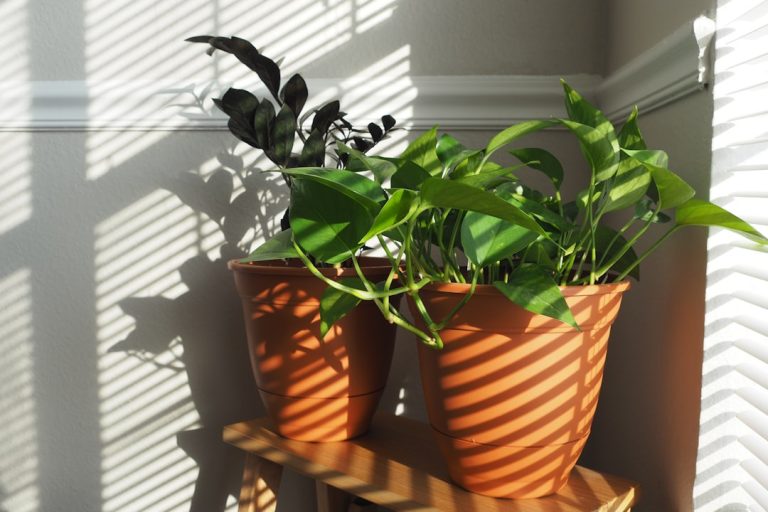Sustainable gardening is becoming increasingly important in the UK as people become more aware of the impact their actions have on the environment. By adopting sustainable gardening practices, individuals can reduce their carbon footprint, conserve water, and create a healthier ecosystem for plants and wildlife. In the UK, where green spaces are highly valued, sustainable gardening is crucial for preserving the natural beauty of the landscape and protecting biodiversity.
Sustainable gardening also plays a significant role in mitigating climate change. By using organic gardening methods and reducing the use of chemical fertilisers and pesticides, gardeners can help to sequester carbon in the soil and reduce greenhouse gas emissions. Additionally, sustainable gardening practices can help to conserve water, which is particularly important in regions of the UK that experience water scarcity. By capturing rainwater, using drought-resistant plants, and implementing water-efficient irrigation systems, gardeners can reduce their water consumption and contribute to water conservation efforts.
Summary
Sustainable gardening in the UK is crucial for preserving the environment and supporting local ecosystems. Creating a sustainable garden involves using natural and organic methods to reduce environmental impact. Choosing native plants for your garden helps support local wildlife and requires less maintenance. Implementing water-efficient practices such as rainwater harvesting and drip irrigation is essential for sustainable gardening. Composting and recycling garden waste helps reduce landfill waste and enriches the soil naturally.
Tips for Creating a Sustainable Garden
Creating a sustainable garden involves making conscious choices about how to design, plant, and maintain your outdoor space. One of the first steps in creating a sustainable garden is to assess your local climate and soil conditions to determine which plants will thrive in your area. By choosing native and climate-appropriate plants, you can reduce the need for excessive watering, fertilisers, and pesticides, while also providing essential habitat for local wildlife.
Another important aspect of sustainable gardening is soil health. By using organic mulch and compost, you can improve soil structure, fertility, and water retention, while also reducing the need for synthetic fertilisers. Additionally, incorporating a diverse range of plants in your garden can help to attract beneficial insects and pollinators, which play a crucial role in maintaining a healthy ecosystem. By creating a balanced and biodiverse garden, you can reduce the risk of pest infestations and promote natural pest control.
For more tips on creating a sustainable garden, read Sustainable Gardening: Tips for Beginners.
Choosing Native Plants for Your Garden
Choosing native plants for your garden is an essential aspect of sustainable gardening in the UK. Native plants are adapted to the local climate and soil conditions, making them more resilient and less reliant on artificial inputs such as water and fertilisers. By incorporating native plants into your garden, you can create a habitat that supports local wildlife, including birds, insects, and small mammals.
Native plants also play a crucial role in preserving biodiversity and protecting endangered species. By planting native species, you can help to conserve the genetic diversity of local plant populations and provide essential food and shelter for native wildlife. Additionally, native plants are often low-maintenance and require minimal watering and care once established, making them an ideal choice for sustainable gardening.
For a comprehensive guide on selecting native plants, visit Native Plants for UK Gardens.
Implementing Water-Efficient Practices in Your Garden
Water conservation is a critical aspect of sustainable gardening in the UK, where water scarcity is a growing concern. By implementing water-efficient practices in your garden, you can reduce your water consumption and help to preserve this precious resource.
| Water-Efficient Practices | Benefits |
|---|---|
| Drip irrigation | Reduces water waste and promotes deep root growth |
| Xeriscaping | Requires less water and maintenance |
| Rainwater harvesting | Utilises natural water source and reduces water bills |
| Mulching | Retains soil moisture and suppresses weed growth |
One way to conserve water in the garden is to capture rainwater using a water butt or rain barrel. This harvested rainwater can then be used to irrigate your garden, reducing the need for mains water and lowering your water bills.
Another water-efficient practice is to choose drought-resistant plants that are well-suited to the local climate. These plants have adapted to survive with minimal water and can thrive in dry conditions without the need for frequent watering. Additionally, using mulch in your garden can help to retain soil moisture and reduce evaporation, further conserving water.
For more water-saving tips, check out Water-Efficient Gardening Techniques.
Composting and Recycling in the Garden
Composting and recycling are essential components of sustainable gardening that can help to reduce waste and improve soil health. By composting kitchen scraps, garden waste, and other organic materials, you can create nutrient-rich compost that can be used to fertilise your garden. Composting not only reduces the amount of waste sent to landfill but also provides a natural and sustainable way to nourish your plants.
In addition to composting, recycling materials in the garden can help to minimise environmental impact. Reusing containers, pots, and other garden materials reduces the need for new resources and decreases waste. Repurposing items such as old pallets or tyres for garden projects can also add a creative and sustainable touch to your outdoor space.
For a detailed guide on composting, read Composting for a Greener Garden.
Using Eco-Friendly Garden Products
Using eco-friendly garden products is an important aspect of sustainable gardening that can help to minimise environmental harm and promote a healthier ecosystem. When choosing fertilisers and pesticides for your garden, opt for organic or natural alternatives that are free from synthetic chemicals. These products are less harmful to the environment and can help to protect beneficial insects, soil microorganisms, and wildlife.
In addition to fertilisers and pesticides, consider using eco-friendly materials for garden projects and maintenance. For example, choose sustainably sourced timber for raised beds or garden structures, or use recycled plastic for pathways or edging.
For recommendations on eco-friendly garden products, visit Eco-Friendly Garden Supplies.
Engaging in Wildlife-Friendly Gardening Practices
Wildlife-friendly gardening practices are an integral part of sustainable gardening in the UK, where preserving biodiversity is a priority. By creating habitats that support local wildlife, such as birds, bees, butterflies, and hedgehogs, you can contribute to conservation efforts and promote a healthy ecosystem.
One way to attract wildlife to your garden is by planting a variety of nectar-rich flowers that provide food for pollinators throughout the year. Another wildlife-friendly practice is to provide shelter and nesting sites for birds and small mammals. Installing bird boxes, bat boxes, or hedgehog houses can create safe havens for wildlife in your garden. Additionally, leaving areas of long grass or wildflowers can provide valuable habitat for insects and other small creatures.
For more ideas on wildlife-friendly gardening, check out Creating a Wildlife-Friendly Garden.
Conclusion
Sustainable gardening is essential for preserving the natural beauty of the UK landscape, protecting biodiversity, conserving water, and mitigating climate change. By adopting sustainable gardening practices such as choosing native plants, implementing water-efficient practices, composting and recycling, using eco-friendly products, and engaging in wildlife-friendly practices, individuals can create outdoor spaces that are not only beautiful but also environmentally friendly. Through these efforts, gardeners can play a crucial role in promoting sustainability and protecting the planet for future generations.
If you’re interested in sustainable gardening in the UK, you might want to check out this article on Eco Friendly Home and Garden website. They offer tips and advice on how to create an eco-friendly garden that is both beautiful and sustainable. From using organic fertilizers to attracting beneficial insects, this article has everything you need to know about sustainable gardening in the UK.
FAQs
What is sustainable gardening?
Sustainable gardening refers to the practice of creating and maintaining a garden in a way that is environmentally friendly, resource-efficient, and economically viable. It involves using organic and natural methods to promote biodiversity, conserve water, and reduce waste. Sustainable gardening practices include composting, using native plants, implementing water-efficient irrigation systems, and avoiding synthetic chemicals.
Why is sustainable gardening important in the UK?
Sustainable gardening is important in the UK because it helps to protect the environment, conserve natural resources, and support local wildlife. It also promotes healthier and more resilient gardens that can withstand the challenges of climate change and other environmental pressures. By reducing reliance on synthetic chemicals and conserving water, sustainable gardening practices contribute to the overall health of the ecosystem and the sustainability of green spaces in the UK.
What are some key principles of sustainable gardening?
Key principles of sustainable gardening include:
- Using organic and natural fertilisers: Avoiding synthetic chemicals that can harm the environment.
- Conserving water: Implementing efficient irrigation methods and using drought-resistant plants.
- Promoting biodiversity: Planting native species and creating habitats for wildlife.
- Reducing waste: Composting garden and kitchen waste, recycling materials, and repurposing items.
- Maintaining soil health: Using organic mulch and compost to improve soil structure and fertility.
How can I practice sustainable gardening in the UK?
You can practice sustainable gardening in the UK by:
- Choosing native plants: Selecting plants that are adapted to the local climate and soil conditions.
- Using organic fertilisers and pesticides: Opting for natural alternatives that are less harmful to the environment.
- Conserving water: Implementing rainwater harvesting, drip irrigation, and mulching to reduce water usage.
- Composting kitchen and garden waste: Creating nutrient-rich compost to fertilise your garden naturally.
- Creating wildlife-friendly habitats: Planting nectar-rich flowers and installing bird boxes or hedgehog houses.
What are the benefits of sustainable gardening?
The benefits of sustainable gardening in the UK include:
- Healthier and more resilient gardens: Promoting strong plant growth and reducing susceptibility to pests and diseases.
- Reduced environmental impact: Minimising the use of synthetic chemicals and conserving natural resources.
- Lower water and energy usage: Implementing efficient irrigation systems and using renewable resources.
- Support for local wildlife: Creating habitats that provide food and shelter for birds, insects, and small mammals.
- Enhanced biodiversity: Preserving the genetic diversity of local plant populations and protecting endangered species.
By integrating these sustainable practices into your gardening routine, you can help create a more eco-friendly and resilient garden that supports the environment and local wildlife. For more tips and advice, explore the wealth of resources available on Eco Friendly Home and Garden.
For further information, check out these related articles:
- Sustainable Gardening: Tips for Beginners
- Native Plants for UK Gardens
- Water-Efficient Gardening Techniques
- Composting for a Greener Garden
- Eco-Friendly Garden Supplies
- Creating a Wildlife-Friendly Garden
By embracing these sustainable gardening practices, you can contribute to a healthier and more vibrant environment in the UK. Happy gardening!


